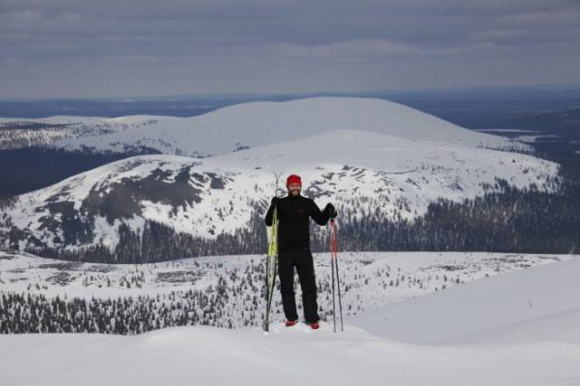
Today in ArcticStartup Sports we’re catching up again with Paul Bragiel, founding partner at i/o ventures to talk about how he’ll actually shoot to qualify for the Olympics in Sochi. He’ll have to push it, despite having no competition from other Colombian traditional cross country skiers, the qualifications are structured to still make it difficult to participate without any real skills or endurance.
AS: A big question on everyone’s mind is, how do you actually qualify for the Olympics?
Bragiel: The average of my top 5 races has to be at either 300 FIS points or below. This means nothing to anyone outside of this sport… and its still a bit confusing to me how they calculate it. 🙂 A rough guide is that for a 15km classic races I have end up around 10-12 minutes behind the first place finisher. It varies a bit depending on the weather, track conditions, etc.
AS: What’s your training schedule look like, and how has it evolved through the seasons?
Bragiel: Early on it was just getting used to the skis. So a lot of technique training with my coach. Very quickly we moved into summer training since I started in April and only got about a month on the snow. To try to get as much ski time as possible I also flew around the world chasing the snow. I spent a month on a glacier in Austria at high elevation. Which also had a double effect of helping work on my oxygen capacity in my lungs. I then subsequently flew to New Zealand and Australia to catch 3 weeks of snow there. Intermittently I did ALOT of running and also used roller skis.
I’m now back in Finland for the past 3 weeks. Luckily for me its been snowing a lot up in Lapland. So I’m doing 2 a days. Morning about 2.5 hours and afternoons around 1-1.5 hours. These tend to be at a mild pace. Every days or so I do a speed endurance day which involves me going at like 85-90% of my maximal speed to help push my limits.
A very important thing is also resting. I try to get a nap in between the two daily trainings and also sleep as much as I can in the evenings. Sometimes this can be hard since I like to stay in touch with friends and family in California that is 10 hours behind.
AS: How have you mentally and physically changed with your training? Like what were you starting with here.
Bragiel: Physically A LOT. I started from a really low level. I hadn’t really done any consistent exercise besides my canoe trip for 8-9 years (Editor’s note: Paul and his brothers canoed down the length of the Missisippi river a few years ago. You can jump down that rabbit hole here). So saying i was out of shape is an accurate picture if not understatement. I was getting a bit chubby too. I started out at around 85kg and am now somewhere at 70kg. This also includes a lot of new muscle so I feel like quite a different person. My endurance has also taken huge leaps. I something think to myself how amazing it is that I can ski 2-3 hours nonstop. First time I tried skis I went 5-10 minutes and was panting like crazy.
Mentally… I dunno. Some days I feel the same. Others I think I have gotten better at dealing with pain as well as dealing with the monotony of some of the training sessions. I have always believed that anything is possible, but this has super reinforced it for me since I’m doing it in a world that is so different than mine. I really hope some of my friends see it that way and go for some of their crazy childhood dreams.




